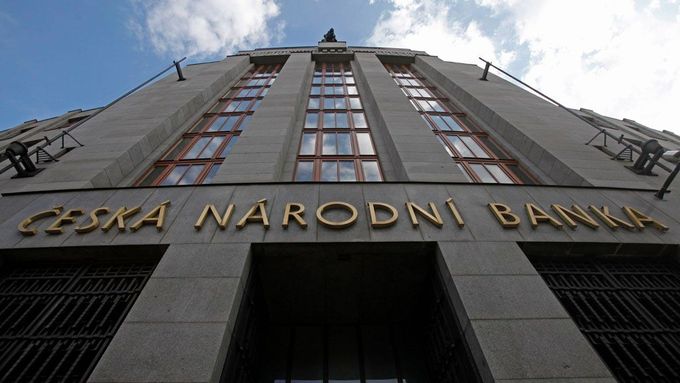Prague - Czech banks would withstand even "a very unlikely stress scenario" of a two-year long economic downturn of their main trade partners, which means Germany and the euro-zone.
This is the result of the most recent stress test of Czech private banks and financial institutions, conducted by the Czech National Bank (CNB). The test used data from the end of the second quarter of 2011.
"The capital of the (Czech banking) sector would stay over the 8 percent regulatory minimum," said the Czech central bank.
Read more: ANALYSIS: Will Czech economy withstand 2nd recession?
The financial health of European banks is once again under spotlight - two weeks ago, some European banks run into cash-flow problems caused above all by the inability of EU and US politicians to agree on a solution of the developed world's public debt problem that wouldn't hamper the economic growth.
Read more: Czech bank's profit drops due to Greek debt crisis
Read more: Greek default would be "no problem" for Czech banks
The representatives of the US Federal Reserve, at their annual meeting in Jackson Hole, expressed their concern over the possibility of the global economy falling once again into a recession, before even having a chance to fully recover from the devastating 2008-9 downturn.
Two-year recession? No prob
The most catastrophic scenario used in the CNB's test was called "Renewed Recession", projecting an 1.85 percent drop in the Czech GDP in 2011 and 2012 combined with a significant depreciation of the debt owed by indebted EU countries to Czech banks. Under the scenario, the euro-zone falls into recession for two whole years, forcing Czech banks to write off Irish, Spanish, Italian, Greek, and Portuguese bonds worth CZK 28bil (EUR 1.16bil). Also, Czech banks suffer loses due to the decrease of value of Czech bonds, falling real estate prices, high inflation, and other economic problems.
Even in case of such unfavorable scenario, Czech banks would not go bankrupt, says the CNB. Only, 11 of them would have to increase their capital by CZK 17bil (EUR 700mil). Some credit unions and pension funds would have financial problems as well under the scenario.
However, as an economic sector, Czech banks and financial institutions would withstand "a wide range of risks", assures the CNB.
In July, the European Central Bank conducted a stress test of 80 financial institutions. Under the crisis scenario used by the bank, eight financial institutions would be left with less than the minimal capital set by the European Banking Authority. The owners of the Czech Republic's four largest banks succeeded in the test.
Unlike the ECB, the Czech National Bank does not conduct its stress tests by sending questionnaires to the banks it want to evaluate. Instead, it uses available data. However, the CNB's scenarios appear to be harder than those projected by the ECB.
For example, the CNB hypothesizes state defaults, inter-bank contagion, and depreciation of the exposure of Czech banks to foreign public debts. Also, some of the CNB's scenarios operate with a sharper decrease of the economic growth, real estate prices, and banks' revenues, and a higher increase of unpaid debts.
For example, while the CNB's August stress test hypothesized a 1.85 percent contraction of the Czech economy, the ECB test's worst-case scenario operated only with a deceleration of the Czech economic growth to 0.6 percent.
The Czech National Bank is conducting stress tests since 2003.





